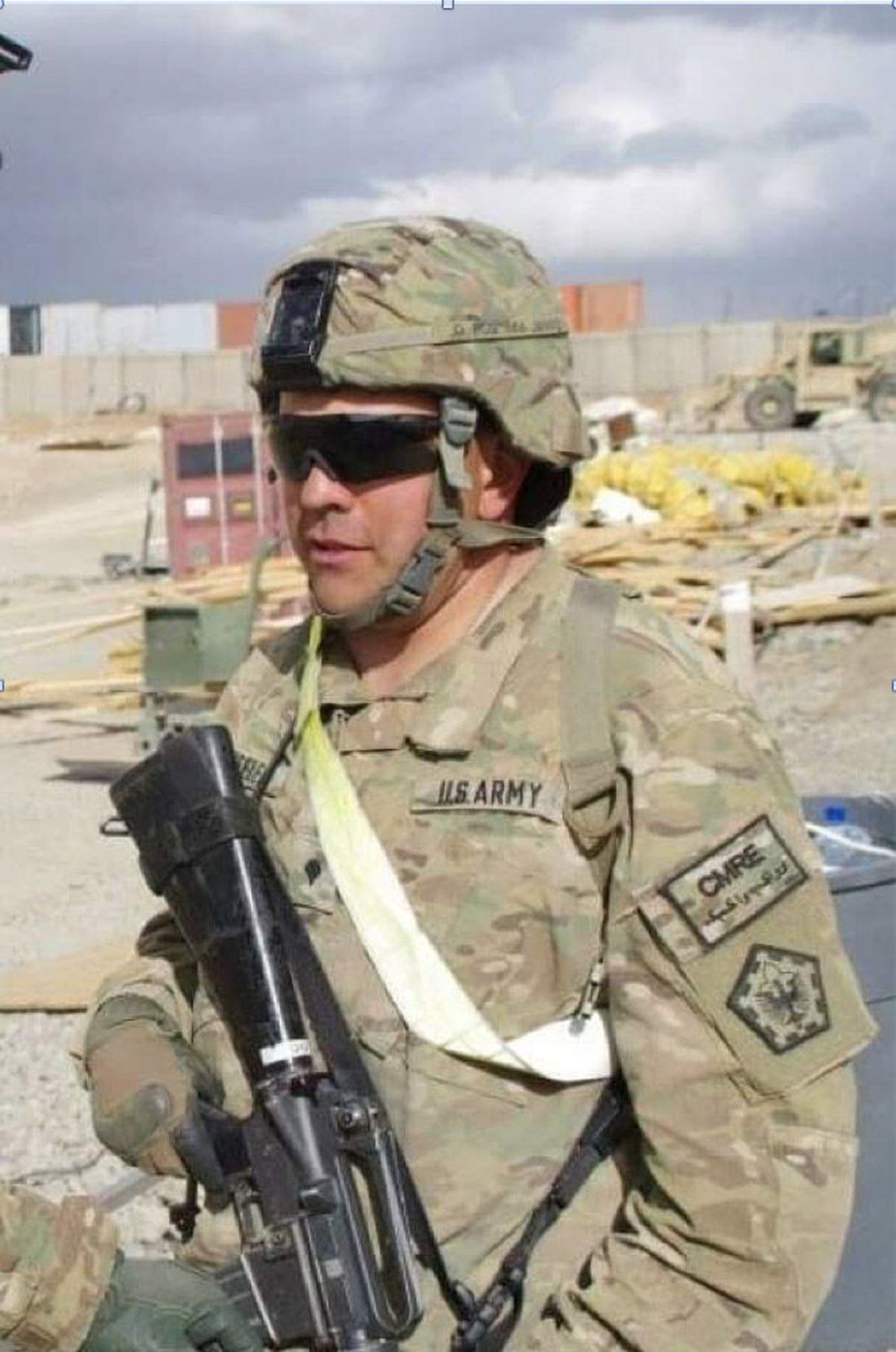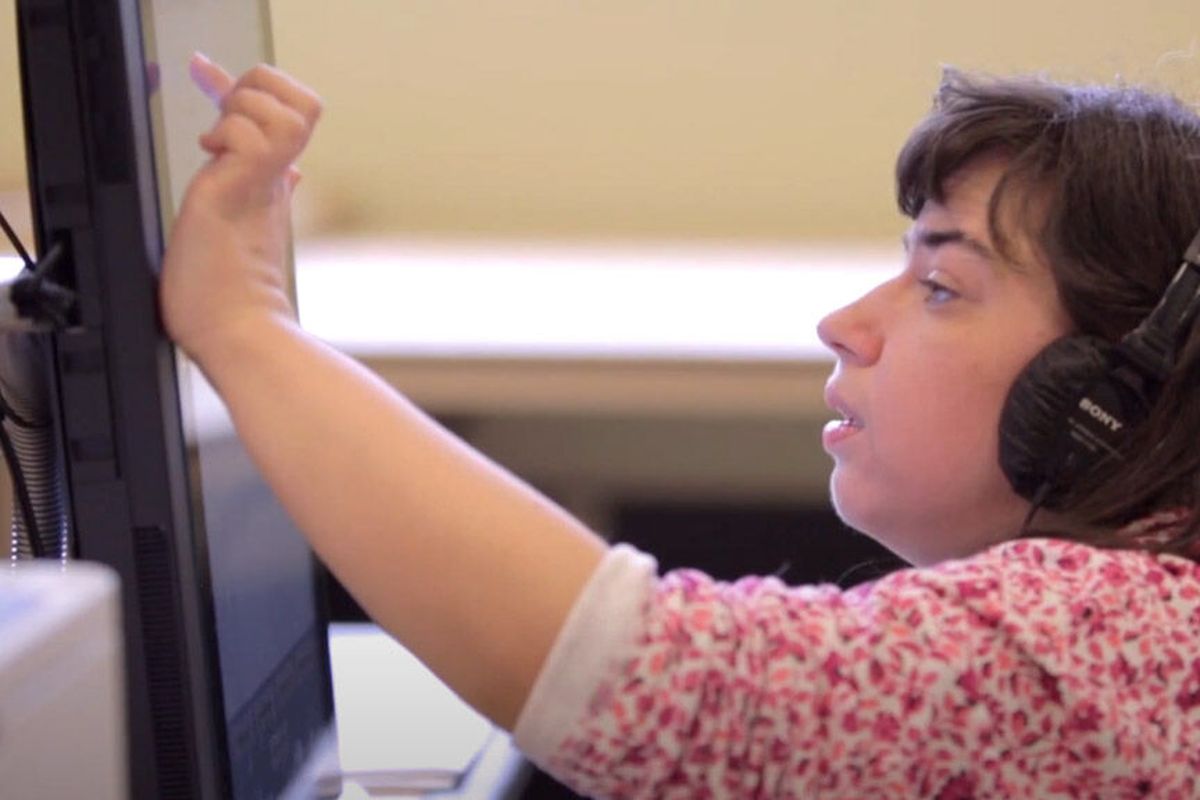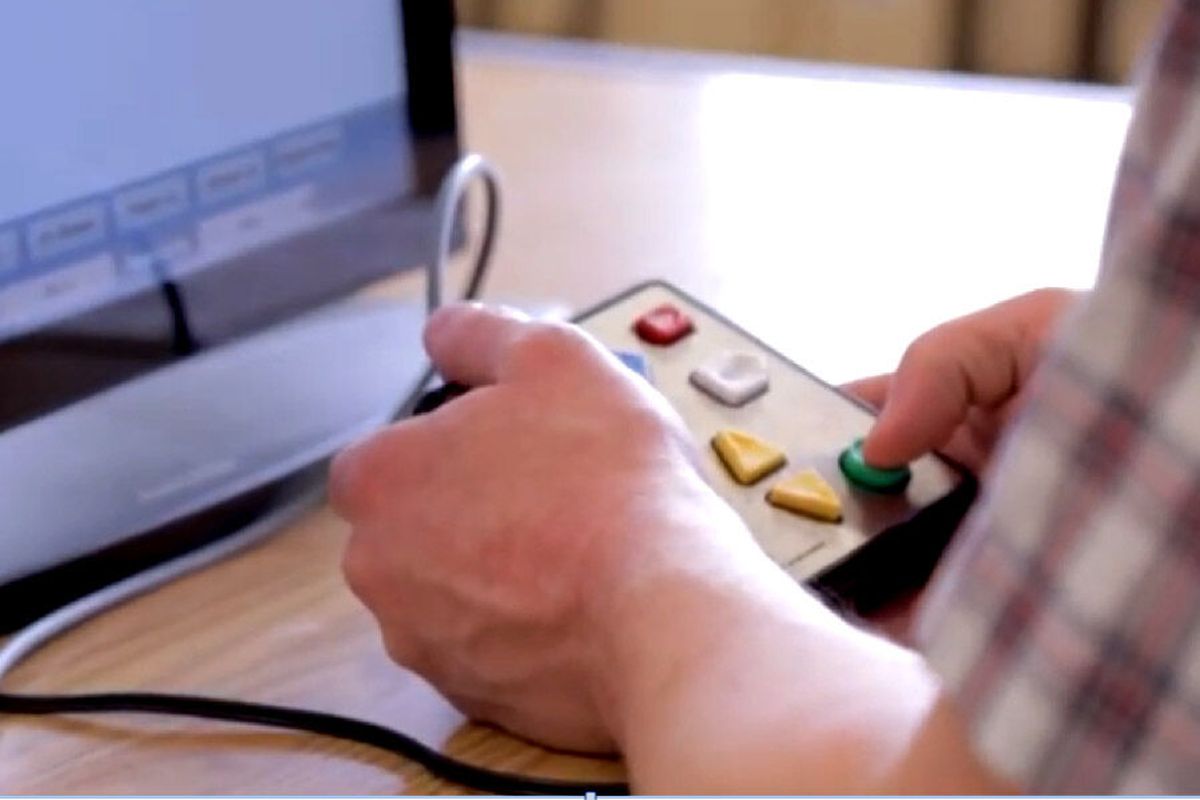Voters who have disabilities can get assistance while maintaining independence and secret ballot
Amy Blair makes use of an Accessible Voting Unit, which enables people who are blind or have low vision to access their ballot using audio or Braille. Pierce County Auditor Julie Anderson said the AVU is available in the auditor’s office 18 days before every election. (Photo courtesy of Pierce County Auditor’s Office)
Julian F. Wheeler, who volunteers as an election observer in Pierce County, appreciates the ways officials continue to make voting more accessible. A veteran of Operation Enduring Freedom in Afghanistan, Wheeler was injured and has a service-related disability that requires him to rely on some of those improvements.
What might be a simple change for some – a curb cut at a bus stop, for instance – can make all the difference for a person with a disability who wants to vote.
State and federal laws as far back as the 1965 Voting Act required efforts to increase accessibility, according to the Washington Secretary of State’s Office.
Among those efforts are new technologies, such as the Accessible Voting Unit, which every county auditor’s office is required by law to have.
Pierce County Auditor Julie Anderson said the unit, available 18 days before every election, allows those who are blind or who have low vision to access their ballots via audio and use a touch paddle with Braille marks.
“Another tactic for low-vision voters is that the screen can blow up the size of the ballot and has contrast controls,” she said. “For people with other disabilities, such as a degenerative muscle disease, where they can’t hold a pen or use a keyboard, they can use their breath to navigate their cursor.”
For those who are deaf, the voting unit features a video remote interpreter.
“In 30 seconds, we can get an American Sign Language interpreter,” Anderson said. “It’s an iPad on wheels, and it’s valuable because an auditor can’t always have an in-person interpreter on hand.”
In Vancouver, Washington, Elections Supervisor Cathie Garber said the Clark County Auditor’s Office has produced an audio voters’ pamphlet for people who are blind or have visual issues. “In the past, we recorded the pamphlets on CDs, and then, when we created our website, people were able to access them there, listening on MP4 files.”
Garber said the auditor’s office has worked with a disability advisory committee on the better ways to provide information. The recordings are inexpensive, Garber said, noting it costs $200 to $600 for an audio specialist to record them.
Accessibility is a consideration in locating the county’s 22 ballot drop boxes, too.
“For people with disabilities who don’t have to get out of their vehicles to vote, that can be important,” Garber said.
She noted the Clark County office has worked to strategically locate drop boxes.
“The city of Vancouver put in a device on one street so we could put up a platform so people driving both ways on the street could use the drop box.
“We want to make it possible for all of our voters to be able to vote,” she added.
The state’s vote-by-mail program improves accessibility for many. “With a mailbox, it means you have a ballot box right outside your home,” she said.
For Wheeler, the veteran who returned from Afghanistan with a medical disability, the improvements in accessibility mean a great deal. “This is what I fought for, for more opportunities for all.”



